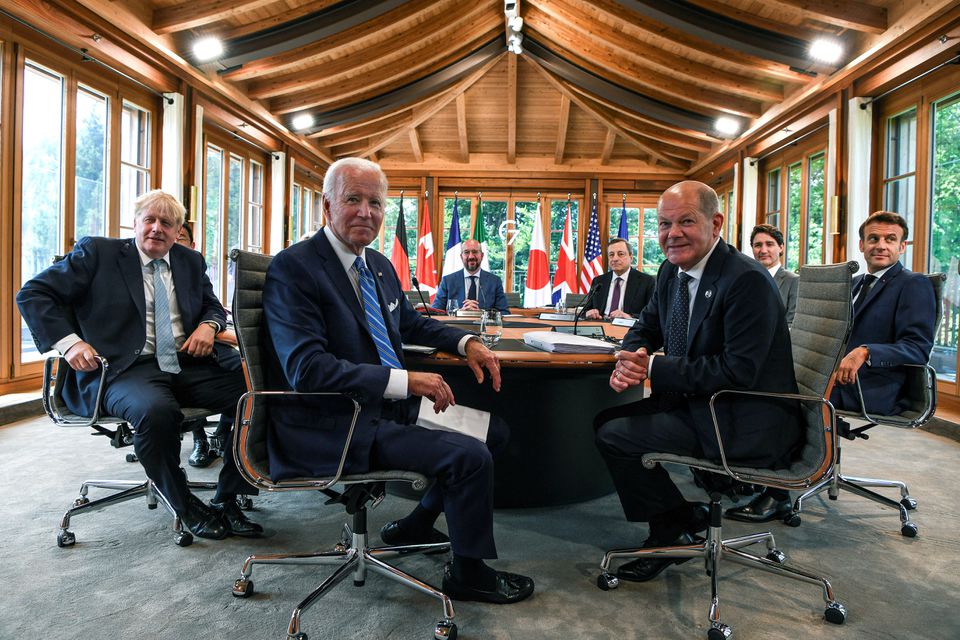The leaders of the Group of Seven nations (G7) have pledged to mobilize $600 billion in public and private funds over five years to finance needed infrastructure in the developing world on Sunday and to counter China’s older multitrillion dollar Belt and Road project.
In 2021, the scheme was first announced at a summit held in Britain. It was referred to as the “Build Back Better World” at the previous summit, then renamed PGII before being resurrected at the 2022 summit.
The president of the United States, Joe Biden, along with other G7 leaders, has relaunched the newly renamed “Partnership for Global Infrastructure and Investment” at their annual summit being held this year at Schloss Elmau in Germany.
“Developing countries often lack the essential infrastructure to help navigate global shocks, like a pandemic, so they feel the impacts more acutely and they have a harder time recovering,” the US president said.
Furthermore, Biden said that the United States would mobilize $200 billion in grants, federal funds, and private investments over a period of five years to facilitate the project in middle and low-income countries.
While elaborating, he said, “I want to be clear. This isn’t aid or charity. It’s an investment that will deliver returns for everyone.”
The initiative would allow countries to “see the concrete benefits of partnering with democracies,” he added.
It is observed that the scheme will be geared towards improving global health, achieving gender equity, tackling rapid climate change and improving digital infrastructure.
Europe has promised to mobilize 300 billion euros for the scheme over the span of five years. This is to build a sustainable alternative to China’s Belt and Road initiative, the president of the European Commission, Ursula von der Leyen, announced.
This latest scheme is meant to present a “positive powerful investment impulse to the world, showing our partners in the developing world that they have a choice,” she added.
A few key initiatives include a vaccine manufacturing facility in Senegal; a 1,609km submarine telecommunications cable connecting Singapore to France via Egypt and the Horn of Africa; and a solar-powered project in Angola.

